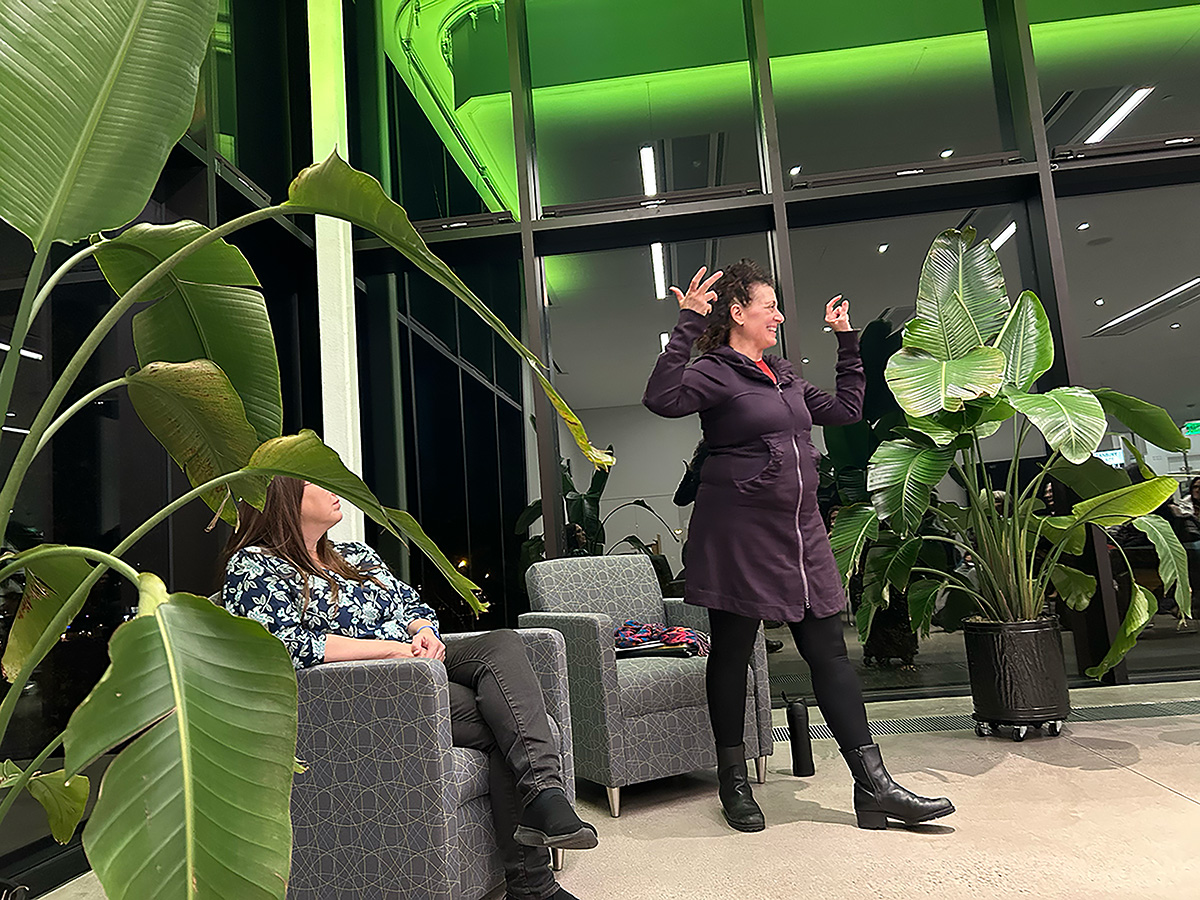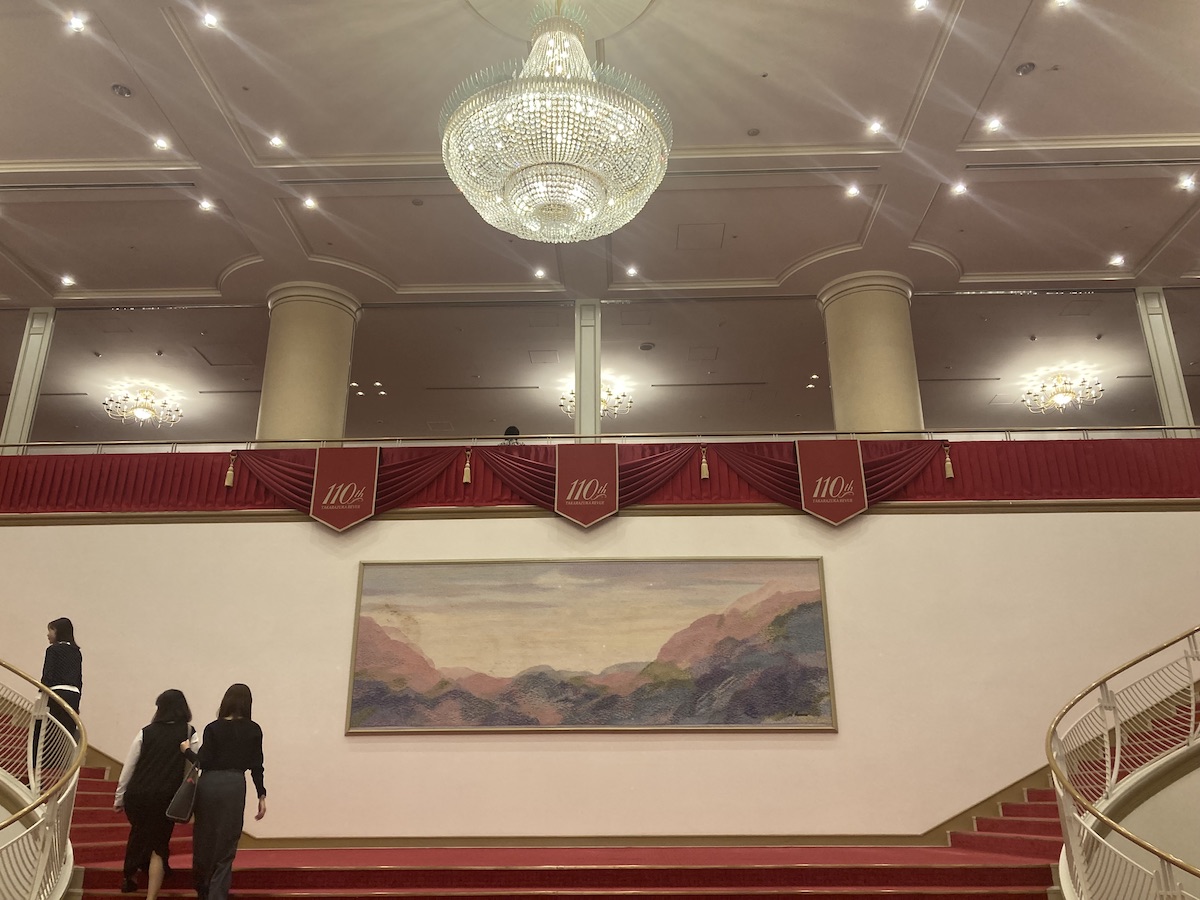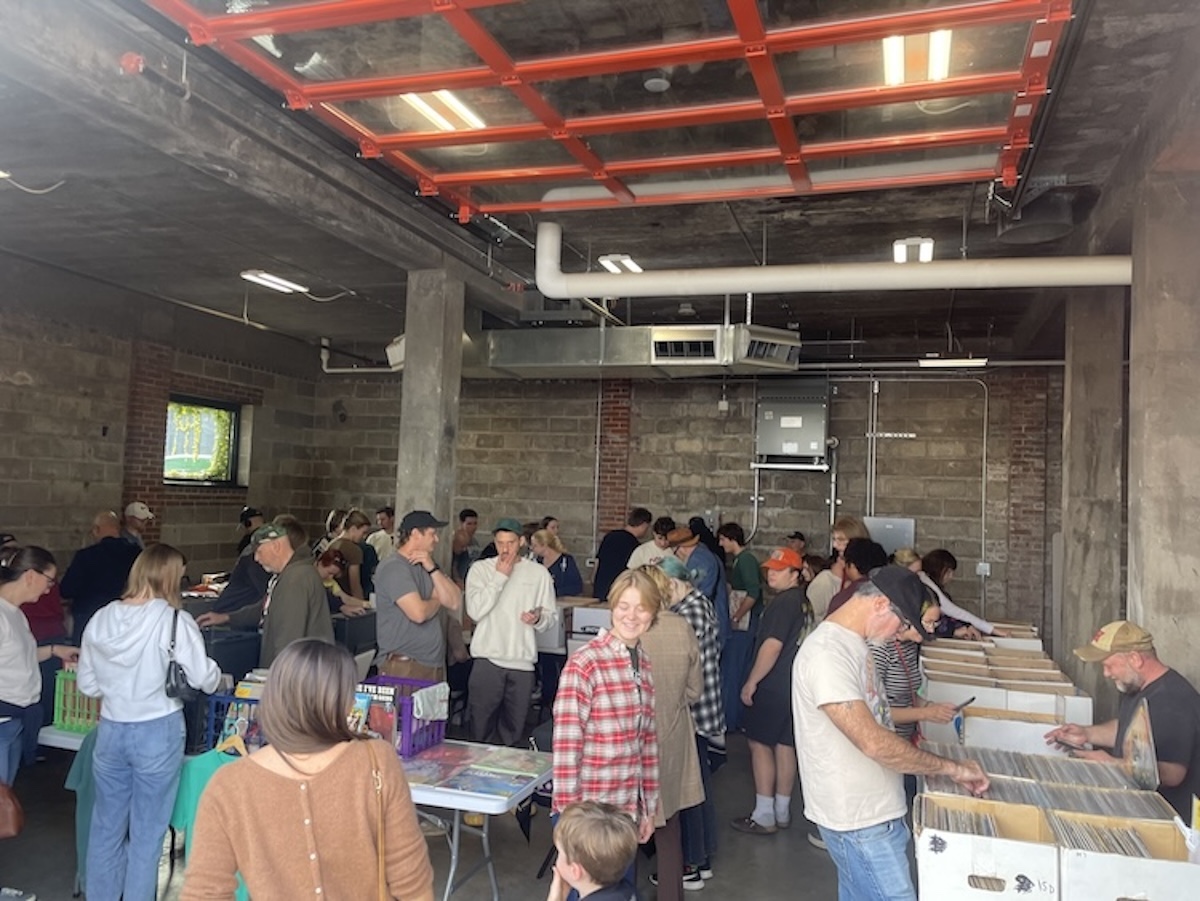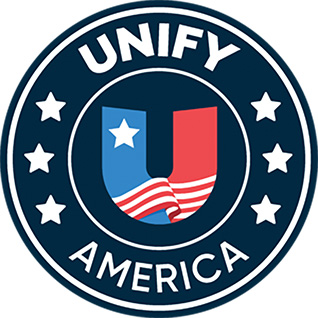The L.E. Phillips Memorial Public Library hosted Christine Varnavas and her workshop: Women and Stress (How to Raise Your Resilience) on Wednesday, Nov. 1.
Christine Varnavas, who recently released her debut publication, “Heal Your Sh!t, Find Your Happy,” has said that she has many titles.
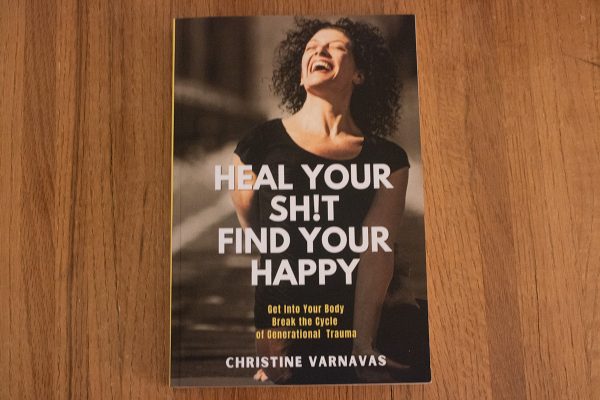
“I am an educator, I am an author and speaker, I am a TRE Global Certification Trainer,” Varnavas said. “I am a mother. That is most definitely a job.”
Varnavas, though immersed in many different careers, most recently began her journey in dealing with stress and trauma.
“Ten years ago I was introduced to this thing called TRE, which stands for Tension, Stress, and Trauma Release Exercise,” Varnavas said. “What it does is it regulates our nervous system. Meaning, it gets us out of fight or flight and more into rest and digest.”
Varnavas said that as a result of TRE, she now knows a lot more about the subject of stress and trauma.
“Stress and trauma can make us feel, think, act, and say things in ways that we then go, ‘Wait, what?’ And so, I’ve kind of been on this quest for the last ten years,” Varnavas said. “I now understand how it works.”
Varnavas also said that she uses her newfound understanding to educate people and help them gain the benefits of relieving stress and trauma.
“When I understand how something works I can then share it, as an educator, to other people and they can understand it and grasp it,” Varnavas said. “That gives us grace with ourselves and with other people.”
Lisa Noname, a community member, said that she attended the workshop because she can personally relate to the topic.
“The topic really resonates with me,” Noname said. “As a professional person and a mom and all the hats that you wear, the stress is real.”
Noname also said that there is a lot that she learned and is going to take away from the workshop.
“I think this was eye-opening for me,” Noname said. “ I’m just starting my self-journey, and I think that I’m going to take what I learned tonight and use it as a stepping stone to continue to figure out who I am and be better for myself.”
The workshop incorporated interactive activities where community members, who were comfortable in doing so, shared their everyday stresses and fears. Though the workshop is open for all, it caters towards women with trauma or who have experienced sexual abuse.
Varnavas said that a lot of women don’t recognize the work they typically do throughout their life, as well as what they miss out on.
“We make all the people, and then we take care of all of the people. What is wrong with that picture?” Varnavas said. “We are not taught to take care of ourselves.”
Varnavas also said that her own experiences had impacted her more than she had ever realized.
“As a survivor, when it happened to me when I was little, what it did is it hijacked my nervous system,” Varnavas said. “It made my internal safety system default to fight or flight. It made it default to fear mode. It made it default to freeze.”
Though there are definitive stresses in all peoples’ lives, Varnavas said that there is a truly important thing to know when taking the steps to take care of stress and trauma.
“Do the work in this lifetime, on this planet, right now,” Varnavas said.
Braun can be found at [email protected].


